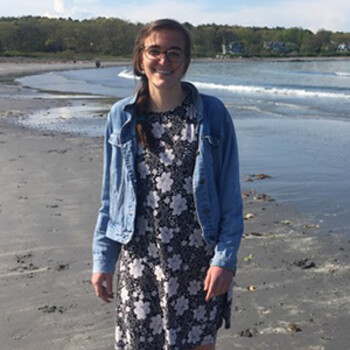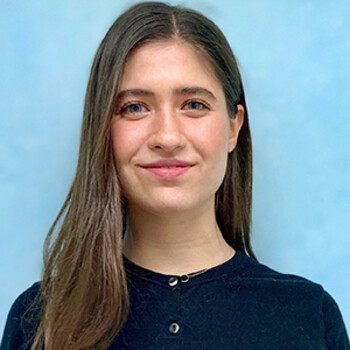MFIA Welcomes New Student Directors

Beginning in the fall, Alice Longenbach ’23, Paul Meosky ’23, and Chelsea Thomeer ’23 will serve as the Media Freedom and Information Access (MFIA) Clinic’s student directors. The three bring many semesters of experience with the clinic to the table and will help further MFIA’s work on government accountability, transparency, and protecting freedom of expression and the rights of journalists.

Thomeer was drawn to MFIA because of her undergrad experiences as an English major and working on the student newspaper at Williams College. “Journalism and media are so important to a healthy democracy,” said Thomeer. “MFIA has been an incredible space to build the practical legal tools to support journalism and newsgathering.”
Also an English major, Meosky was a defense consultant to the government for two years after college. Working on information warfare and strategy, he developed an interest in how information is structured and regulated by the law. “I came to law school to understand how we use the law to communicate with our government and with each other,” said Meosky. “That communication is what MFIA is all about.”
Longenbach has always had an interest in the media, but she credits a summer internship at PEN America for deepening her understanding of the critical infrastructures that support it. “Journalists depend on a range of those support systems,” she said. “Working with MFIA has been an opportunity to use law to help and protect journalism and newsgathering.”

At MFIA, the three have worked on a range of matters, broadening their interests and immersing themselves in new areas of law.
Longenbach was part of the MFIA team that successfully won the dismissal of a defamation suit against local news site the New Canaanite. “Local news and journalists need a lot of support and don’t have the resources of big nationwide newspapers,” said Longenbach. “It was incredibly gratifying to win this case and to score a victory for local journalism in Connecticut.”
MFIA has also used defamation litigation as an unorthodox tool to fight misinformation, as Thomeer learned in her work in MFIA’s suit against the Gateway Pundit, a website that repeated false claims about two women who served as election workers in Fulton County, Georgia during the 2020 election. “We must hold people accountable for the lies that they tell,” Thomeer said, “especially in situations that are as serious as electoral democracy.”

Meosky was involved in MFIA’s 2021 petition fighting for court transparency in Puerto Rico. “I got to learn a lot about how important court transparency can be to a community that is really suffering,” he said of the case. “While we often talk about transparency and accountability as abstract ideals, it’s been incredible to see how we as lawyers can intervene to help get someone’s voice and story out there at a personal level.”
As student directors, the three will assist the clinic supervisors in organizing and administering the clinic. As the clinic reopens in person after the COVID-19 pandemic, they are all interested in expanding its social offerings, building a community of students interested in First Amendment and media law.
The Media Freedom and Information Access Clinic at Yale Law School is dedicated to increasing government transparency, defending the essential work of news gatherers, and protecting freedom of expression through impact litigation, direct legal services, and policy work.


